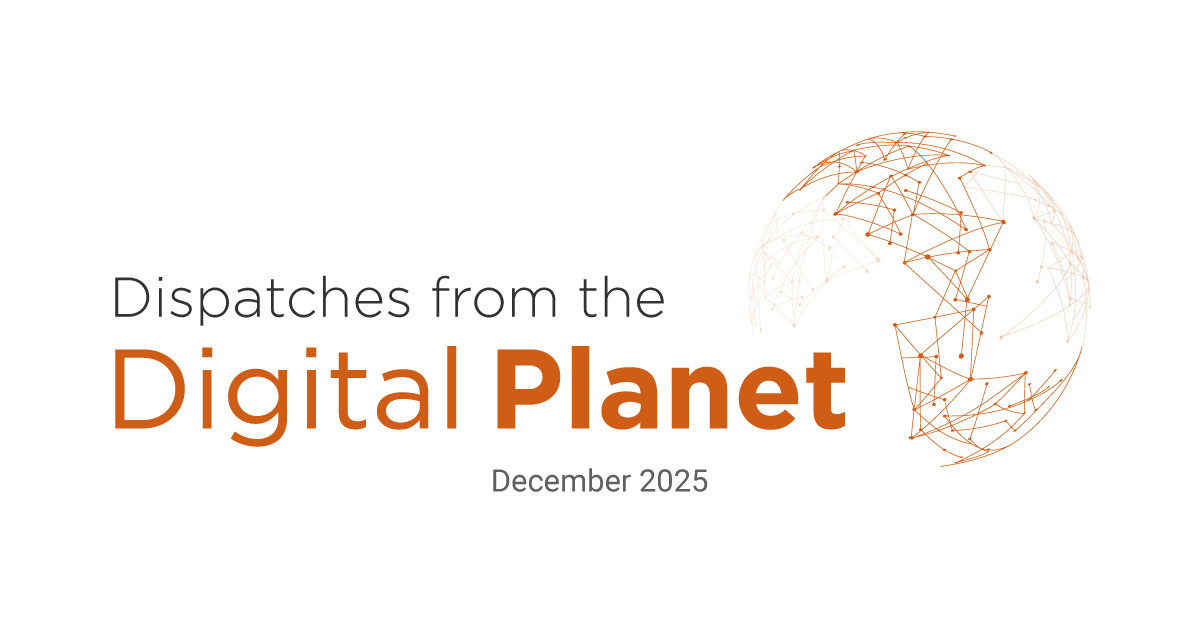
Dispatch from Digital Planet: December 2025
Dispatch from the Digital Planet is a monthly bulletin that talks about new updates in digital innovation across the world and their impact.

Dispatch from the Digital Planet is a monthly bulletin that talks about new updates in digital innovation across the world and their impact.
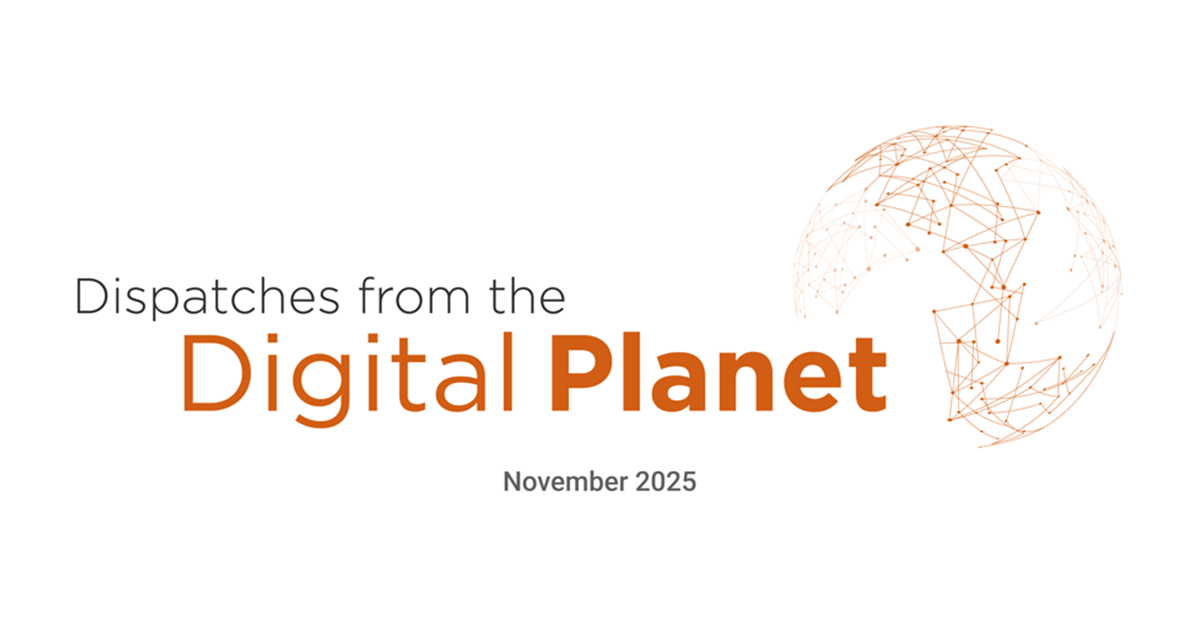
Dispatch from the Digital Planet is a monthly bulletin that talks about new updates in digital innovation across the world and their impact.

Dispatch from the Digital Planet is a monthly bulletin that talks about new updates in digital innovation across the world and their impact.
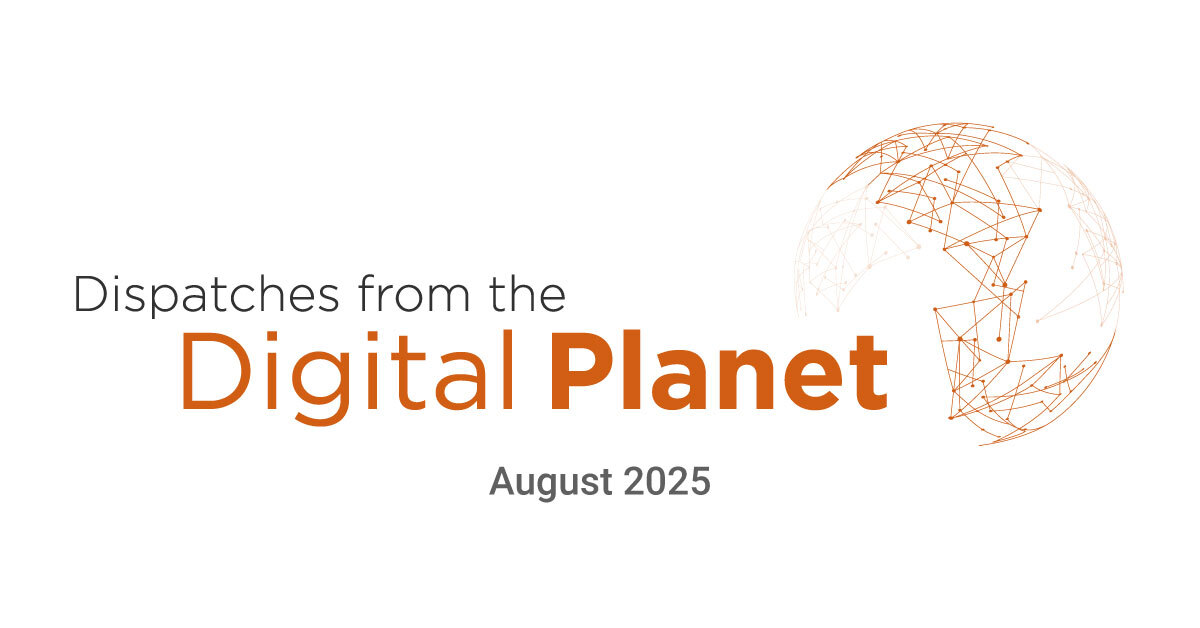
Dispatch from the Digital Planet is a monthly bulletin that talks about new updates in digital innovation across the world and their impact.
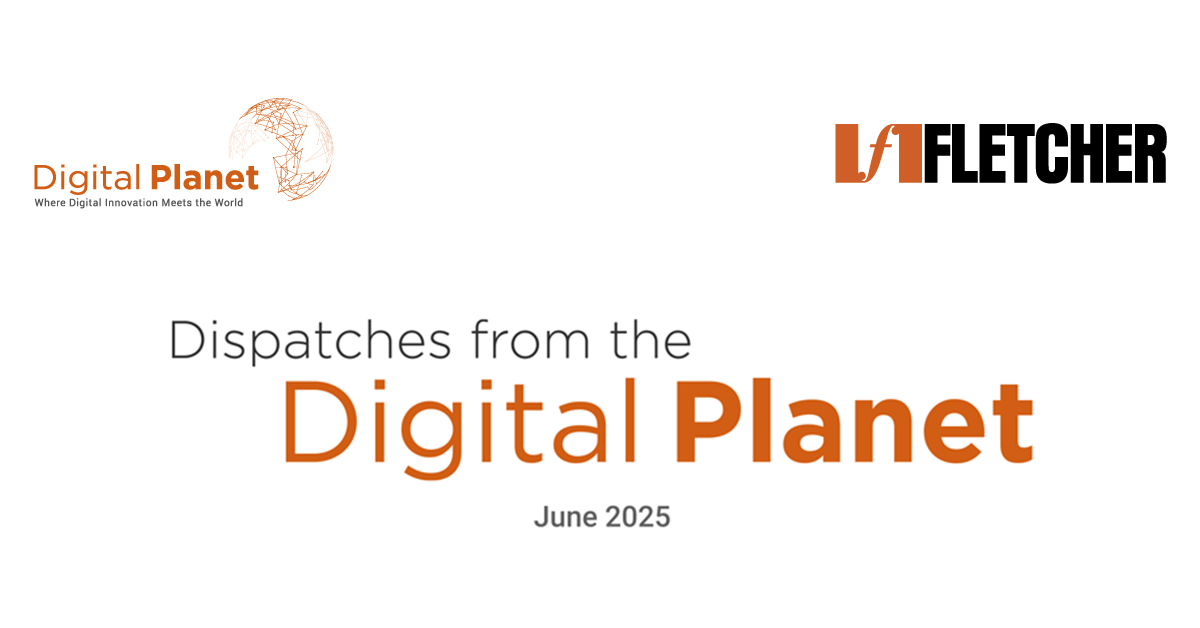
Dispatch from the Digital Planet is a monthly bulletin that talks about new updates in digital innovation across the world and their impact.
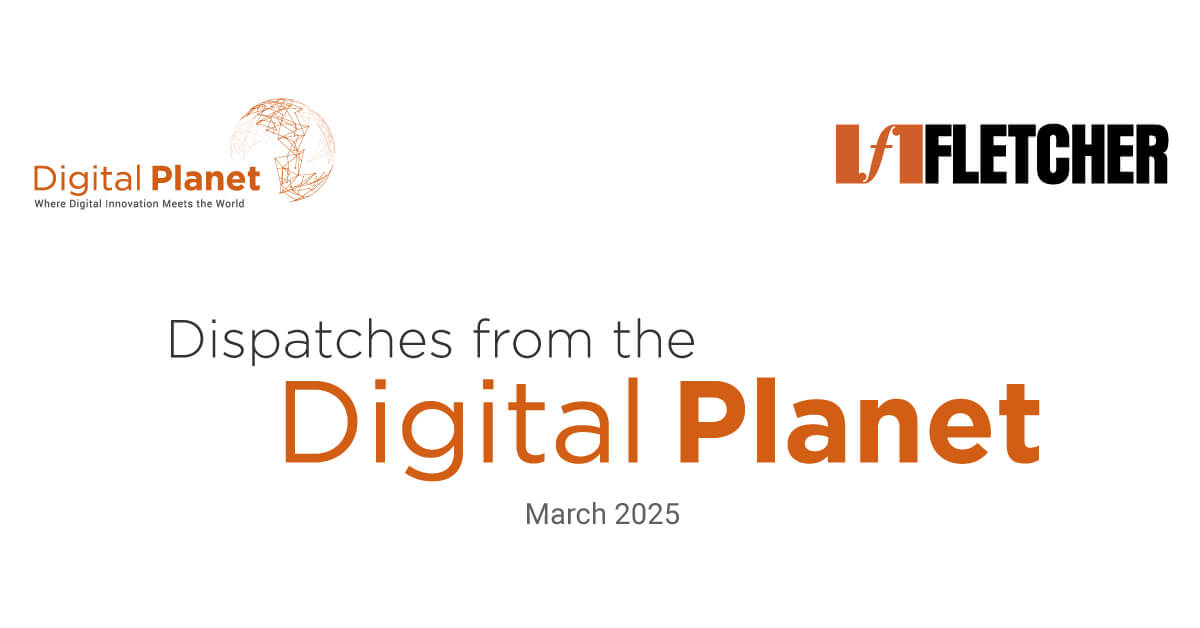
Dispatch from the Digital Planet is a monthly bulletin that talks about new updates in digital innovation across the world and their impact.
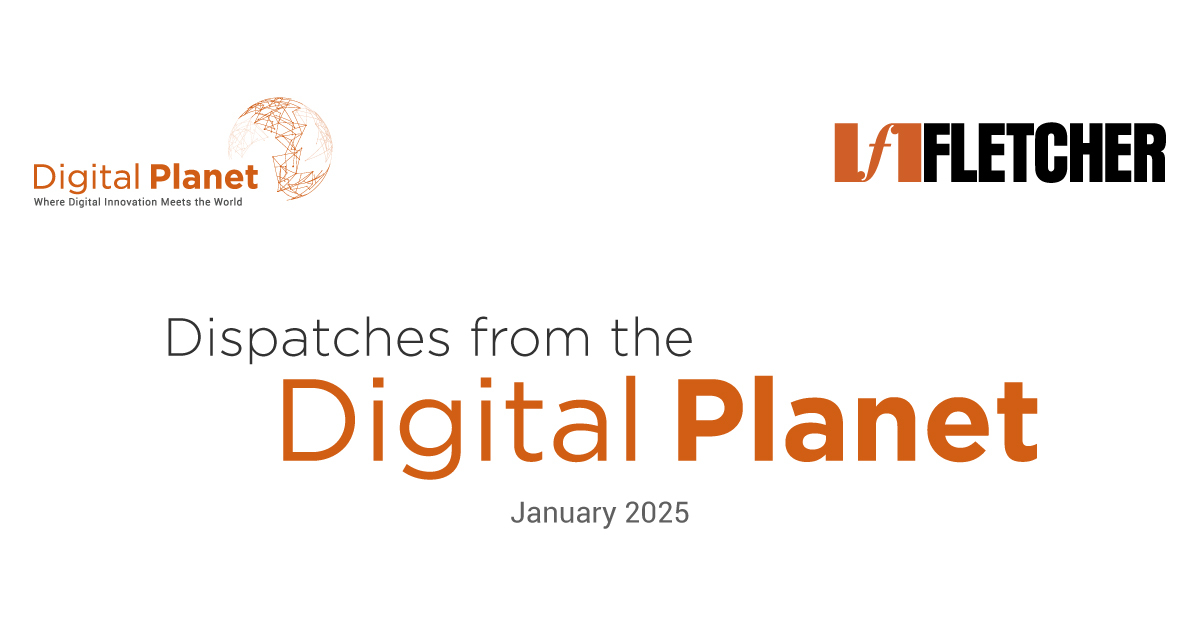
Dispatch from the Digital Planet is a monthly bulletin that talks about new updates in digital innovation across the world and their impact.

Dispatch from the Digital Planet is a monthly bulletin that talks about new updates in digital innovation across the world and their impact.

Discover whether Kamala Harris could be the ‘AI Tsar’ in this engaging discussion with Bhaskar Chakravorti.
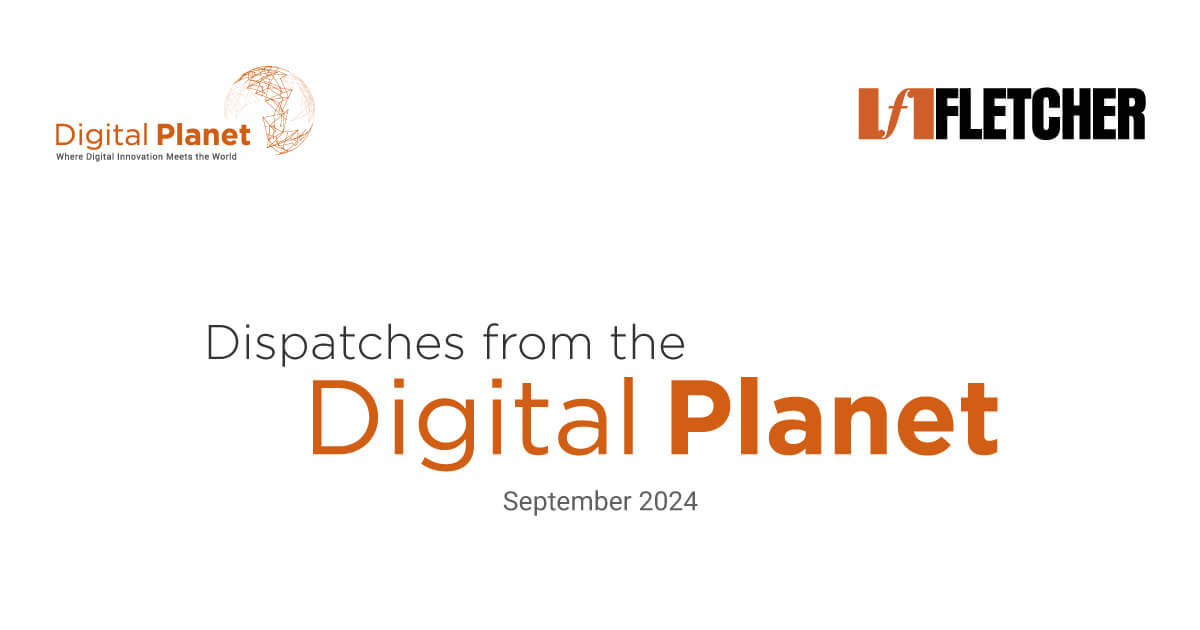
Dispatch from the Digital Planet is a monthly bulletin that talks about new updates in digital innovation across the world and their impact.
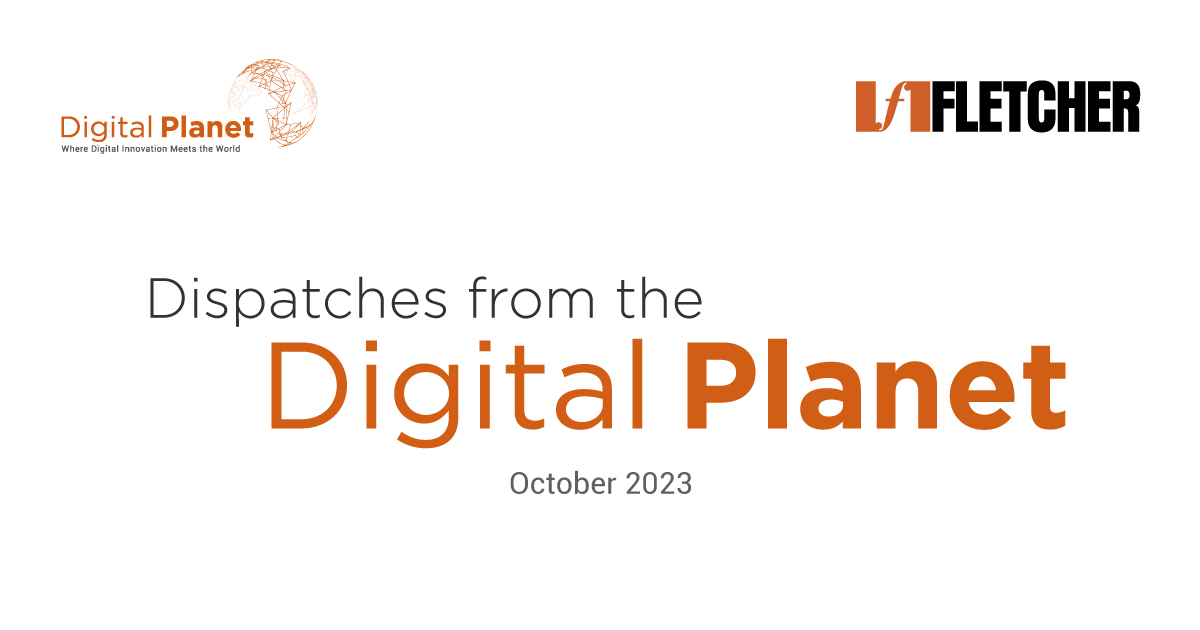
Dispatch from the Digital Planet is a monthly bulletin that talks about new updates in digital innovation across the world and their impact.
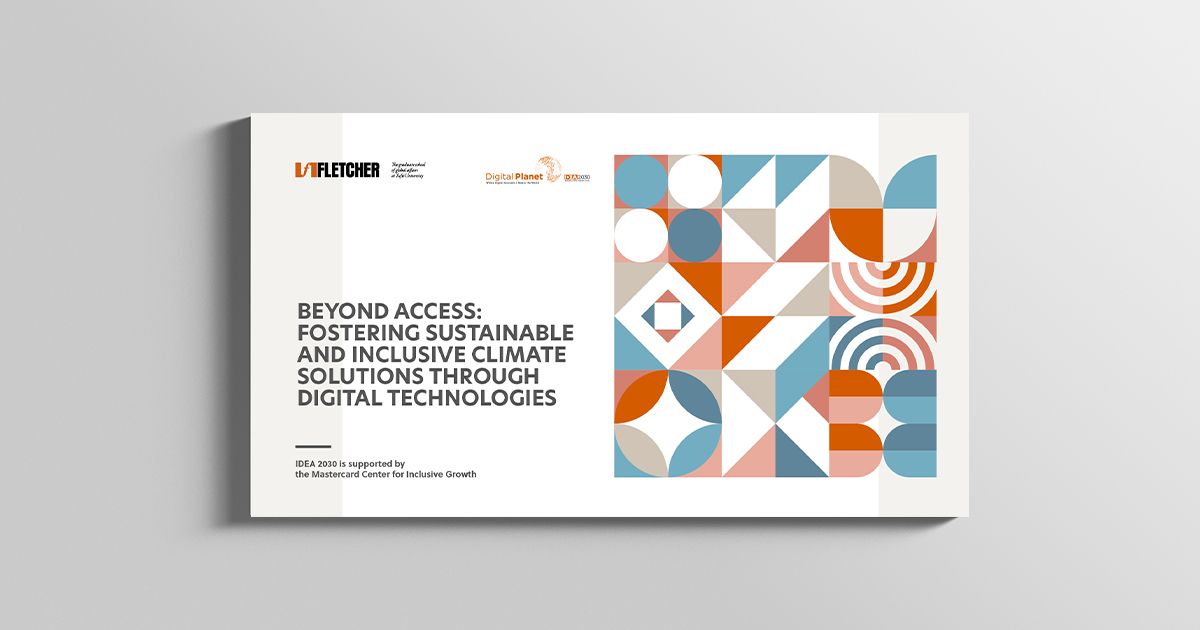
Innovative businesses are key to sustainable development. This research highlights three companies: Husk Power Systems (sustainable energy), Nexsis (solar panels for essential services), and ThredUp (secondhand e-commerce). Insights emphasize the value of pay-as-you-go models, digital tech’s role in sustainability, women’s empowerment via regenerative tech, the need for government support in renewables, and maintaining consumer demand.
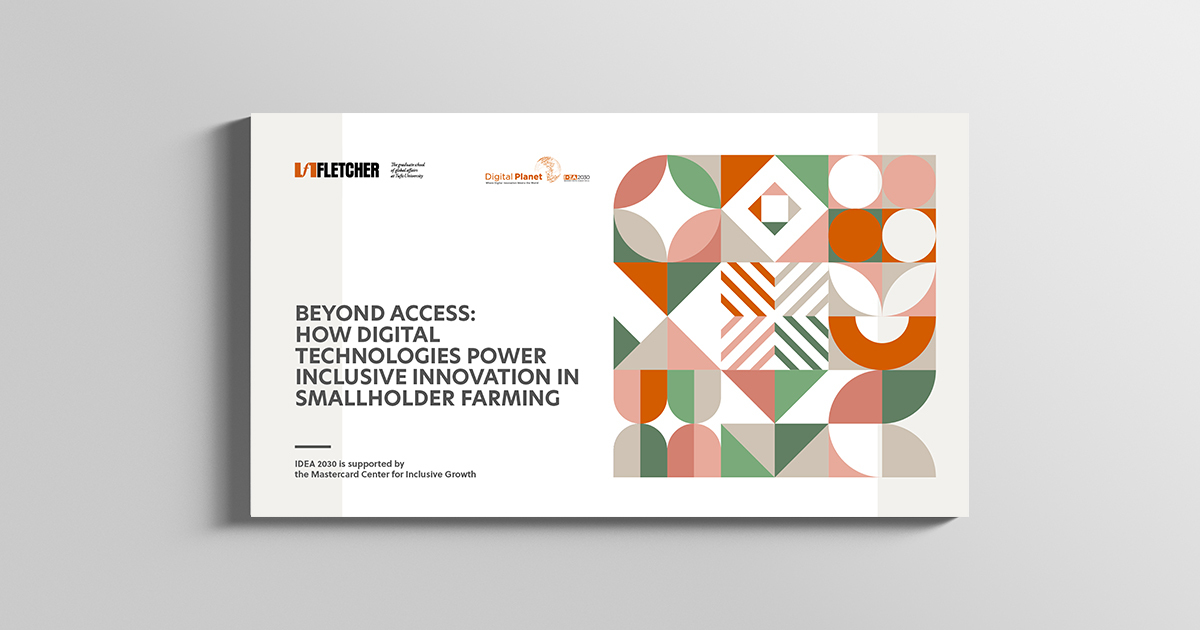
In this second edition of the case compendium, we cover three
enterprises working in the education technology (ed-tech)
and upskilling industry in three distinct emerging markets.

Women remain under-represented in high-paying technical and decision-making roles in STEM professions – a scenario that exposes the Achilles’ heel of the entire technology industry.
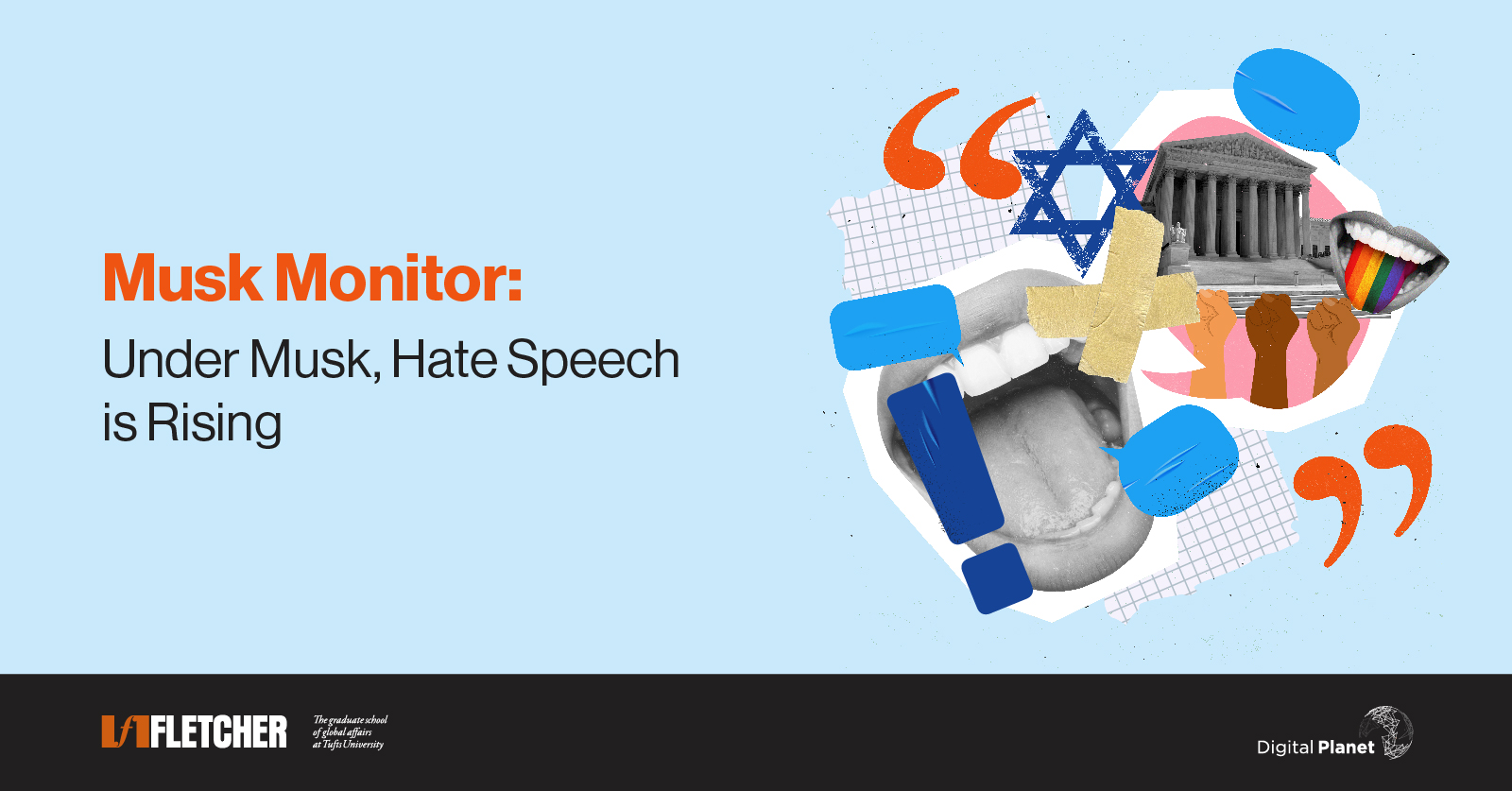
Post Elon Musk’s Twitter takeover, hate speech surged. We examined antisemitism, anti-LGBTQ+, racial hate. Analysis (Mar’22-Jan’23) revealed: hate speech volume increased, discourse quality worsened. Despite slight policy shift, toxicity persisted under Musk’s Twitter.

Ahead of the US midterms, Twitter analyzed trending toxic political themes. Pre-Musk, focus was countering misinformation and hate. Post-takeover, discourse quality declined, extremists emerged.
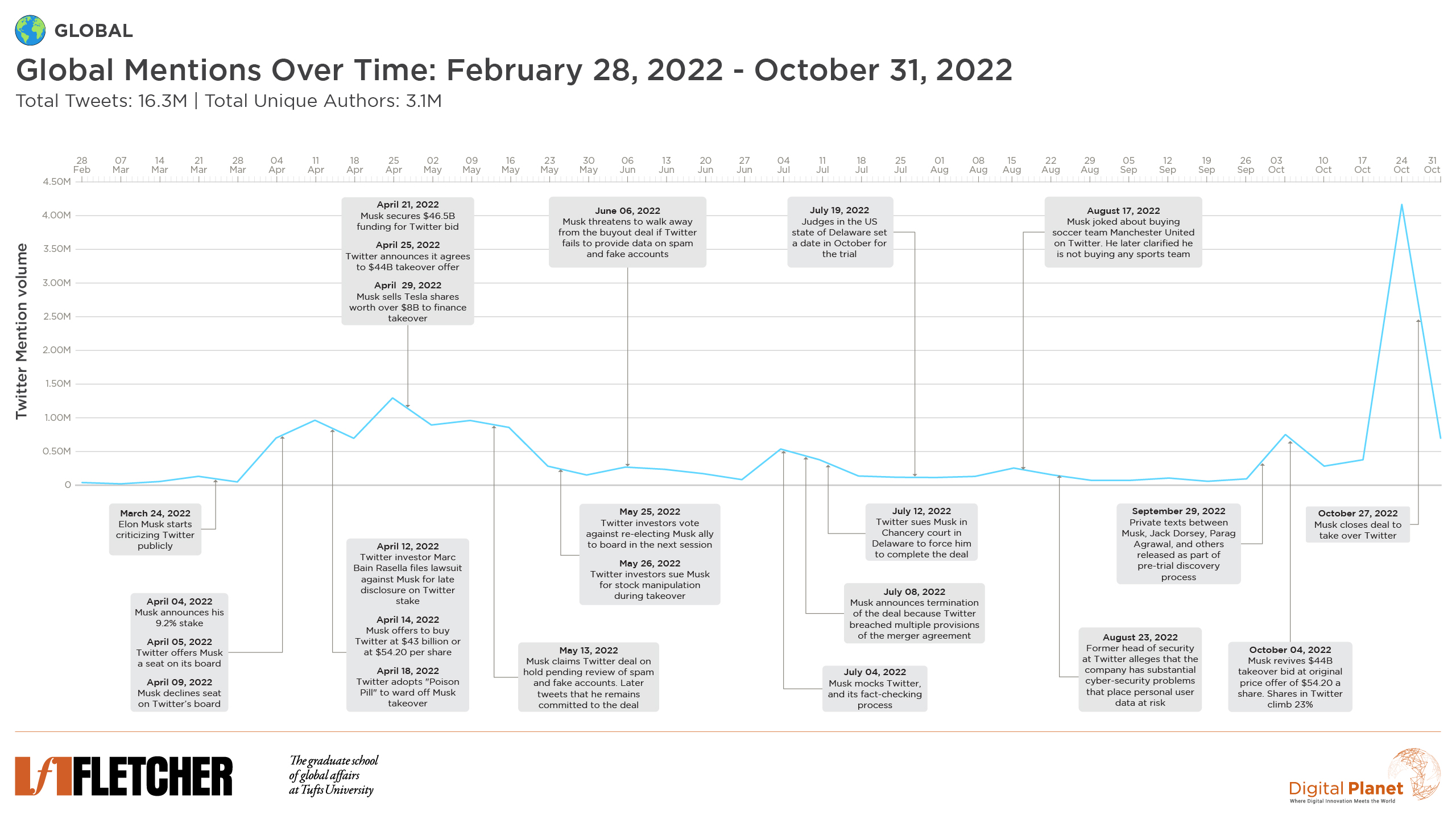
Examining 16.3M tweets (Feb-Oct ’22) from 5 nations on Elon Musk’s Twitter takeover, reactions shifted: positive to criticism, negativity to buyout plan, sadness on his control. Across countries, emotions followed Musk’s moves on Twitter.
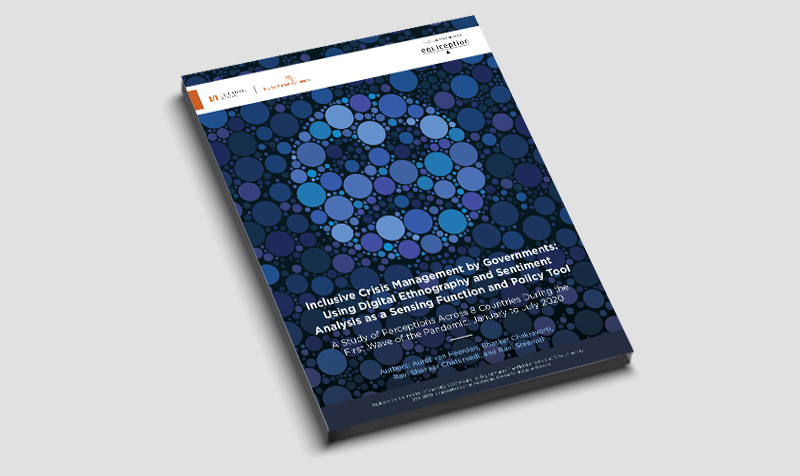
How can real-time social analytics provide a tool for inclusive policymaking? This report uses a dataset of over 873 million online interactions drawn from more than one hundred social and mainstream media channels to analyze public sentiment and emotion in response to the pandemic management of eight governments between January and July 2020.
In collaboration with Equiception

The under-representation of women in high-paying STEM roles is a vexing issue that exposes a systemic inertia across the industry.

Discover Ukraine’s Resilient Tech Economy Amidst Conflict. President Zelensky prioritizes economic preservation in the face of war, removing obstacles for SMEs. Tech sector fuels growth, accounting for $2B in Q1 2022. Learn how digital infrastructure, contingency plans, tax breaks, and security training contribute to its success. Follow our series ‘Imagining a Digital Economy for All in Ukraine’ to explore insights from industry leaders navigating the challenges. Adaptability, collaboration, and innovation redefine the future of work in a dynamic landscape.
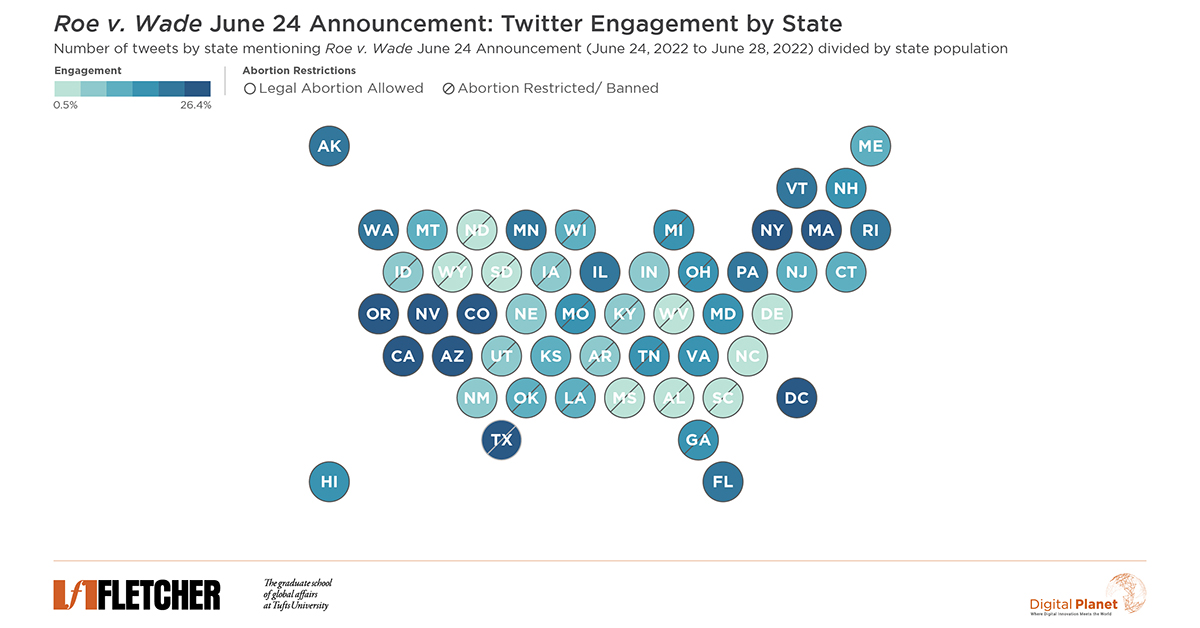
How did Twitter react to the Roe v. Wade announcement from the Supreme Court? What does this mean for abortion rights in America?
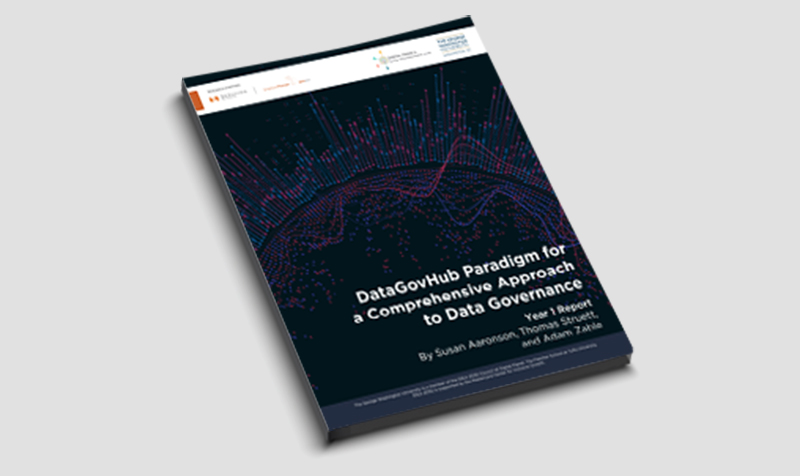
Policymakers face the challenge of governing diverse data effectively to build trust in a flexible, ethical, and accountable manner.
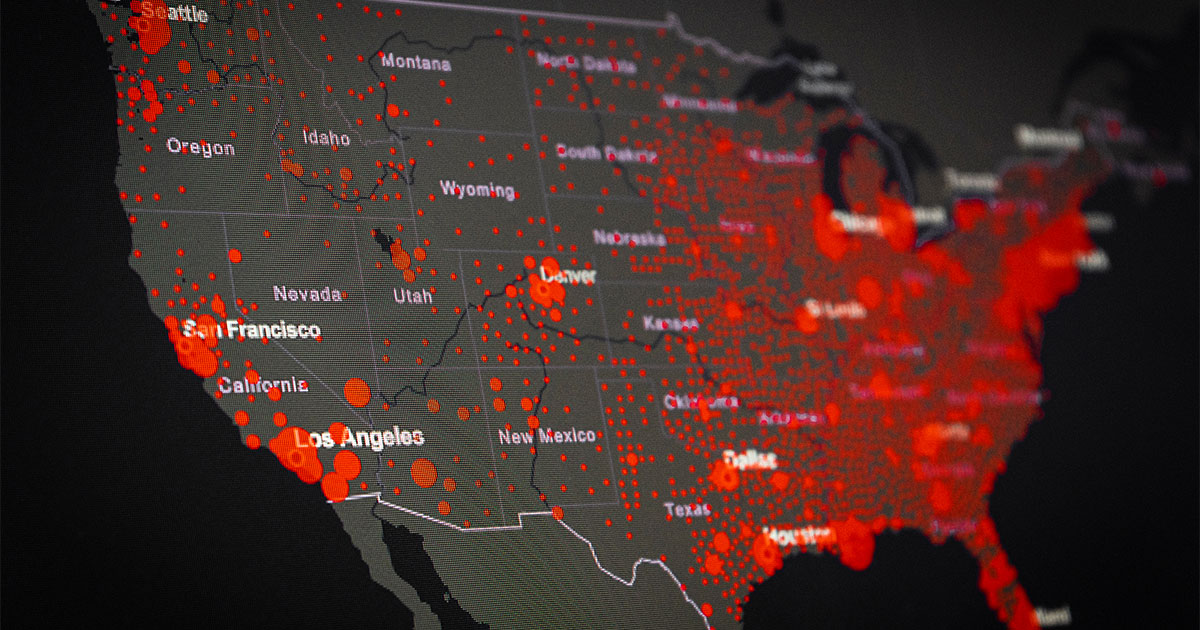
US broadband expansion lowered Covid mortality, especially in metro areas. Internet access is crucial in the public health toolbox.
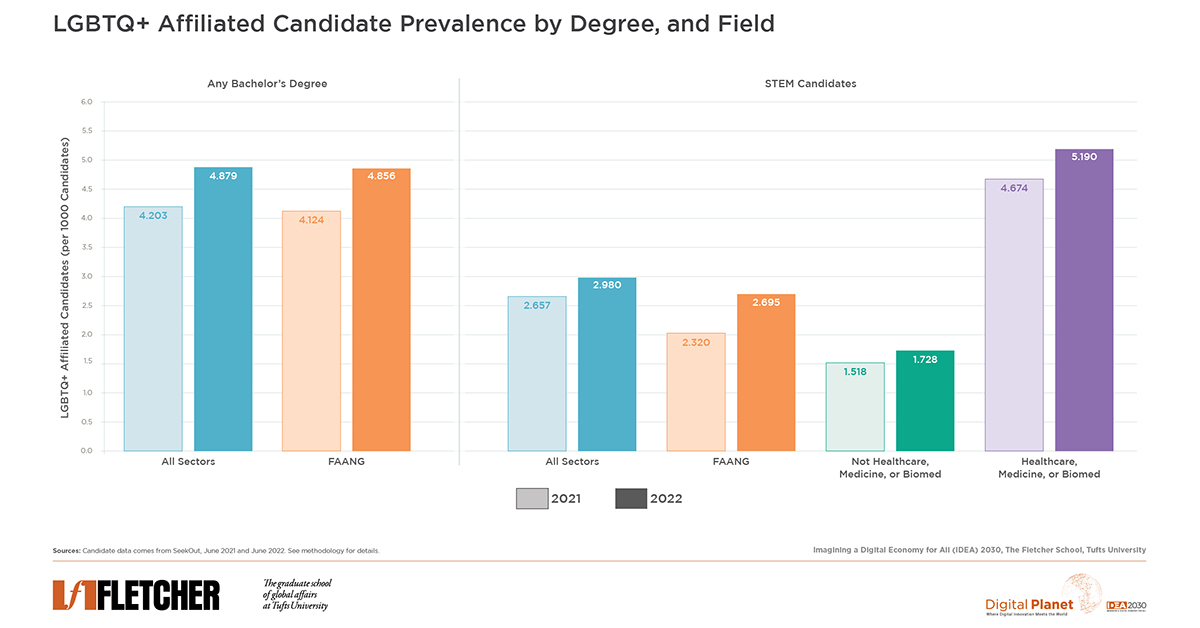
For Pride Month 2022, Digital Planet updates LGBTQ+ representation analysis in STEM. Affiliation disparities persist, with women in STEM and FAANG facing challenges. Younger STEM candidates lag behind college graduates in LGBTQ+ affiliation.
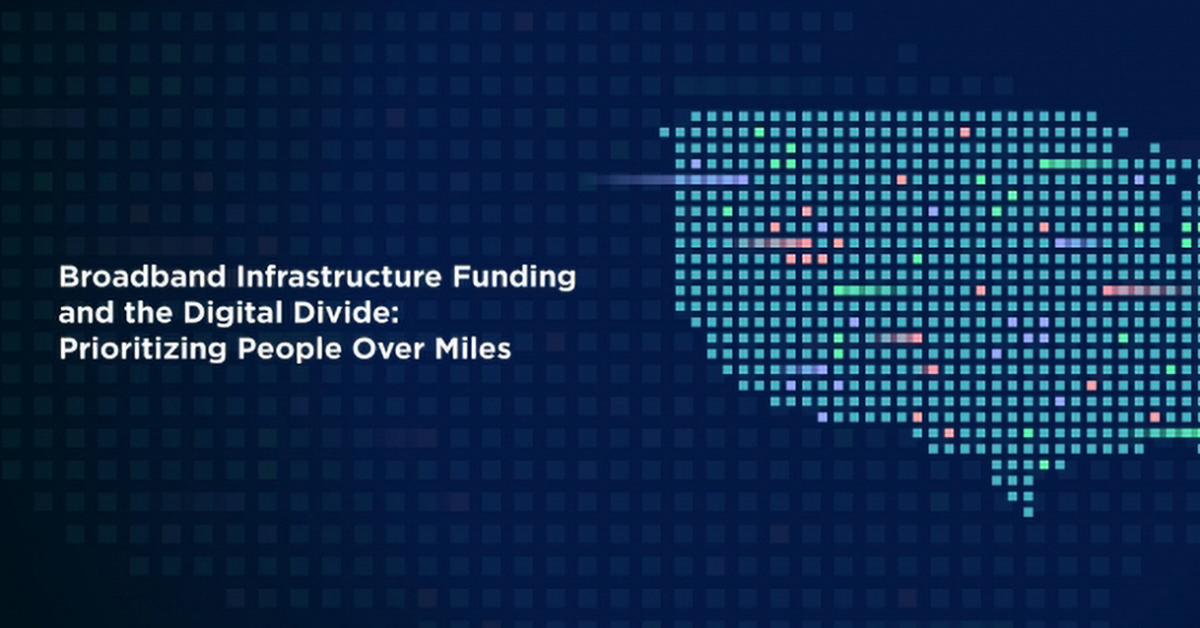
The Infrastructure Investment and Jobs Act allocates $65B to expand US broadband. We advocate a “people over miles” approach for equitable access.

We present Progress to Digital Parity—an interactive scorecard that tracks the journey towards realizing the goal of a digital economy for everyone, everywhere.

The needs of the global sustainable development agenda are both broad and urgent, and innovation models are central to addressing them in a timely, efficient, and scalable manner, from promoting inclusive growth and ensuring the longevity of natural resources to addressing issues across the state of the human condition.
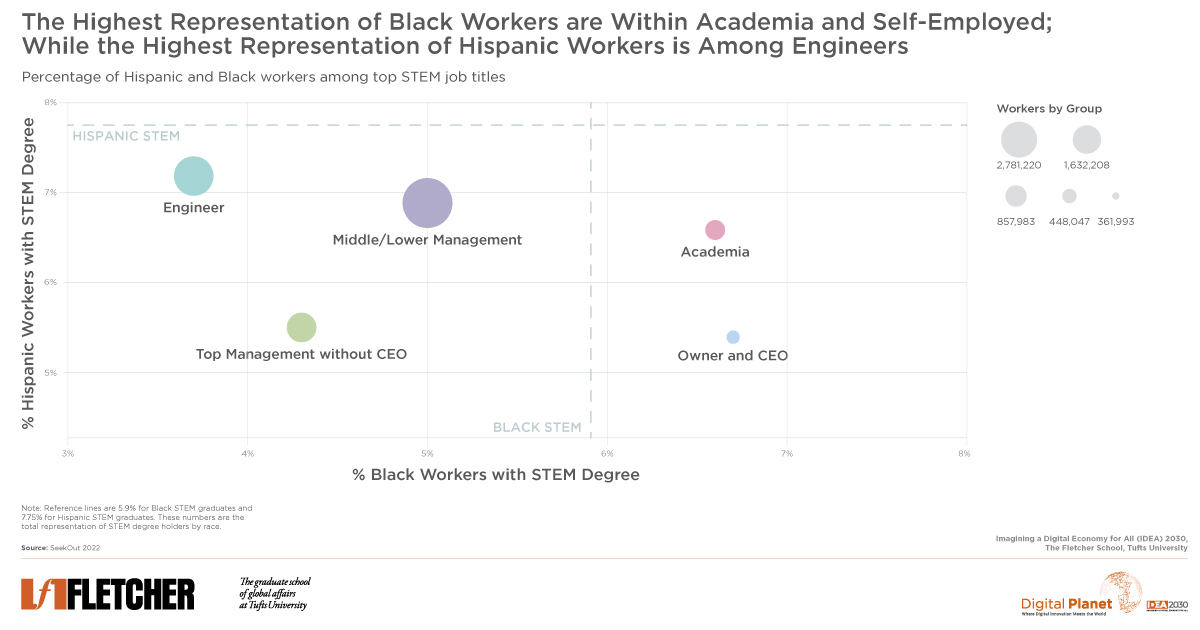
Despite strides in college attainment, Black Americans encounter obstacles in pursuing lucrative careers, especially in high-paying STEM roles within the technology sector.
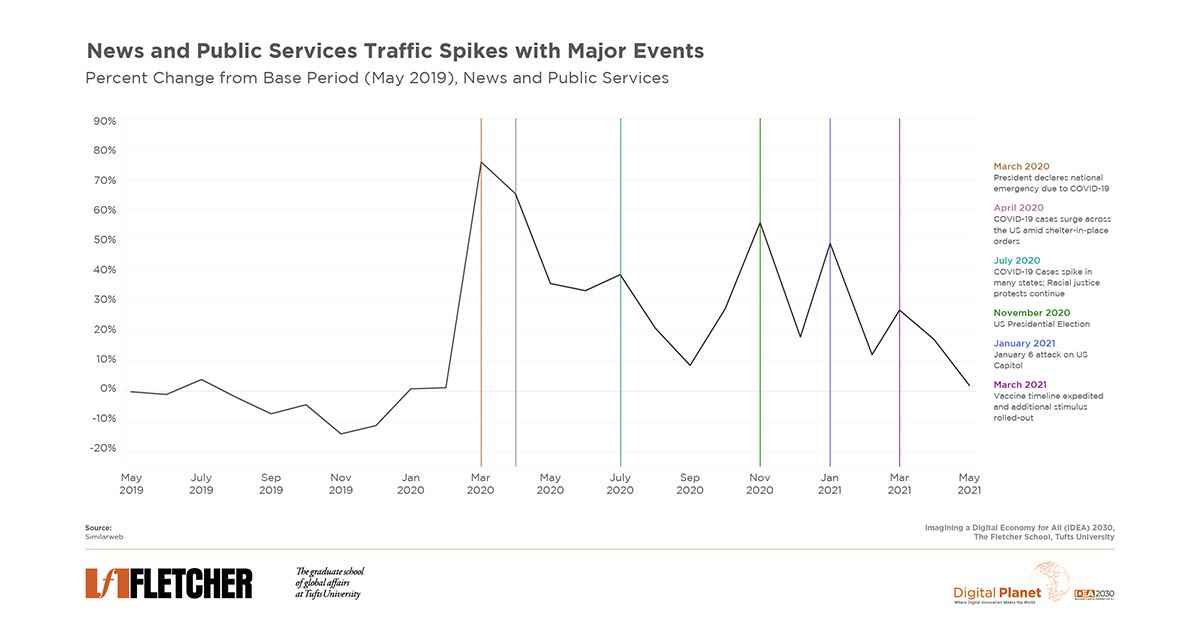
During the online shift, global digital adoption surged, advancing us digitally by 5 years in just 8 weeks.
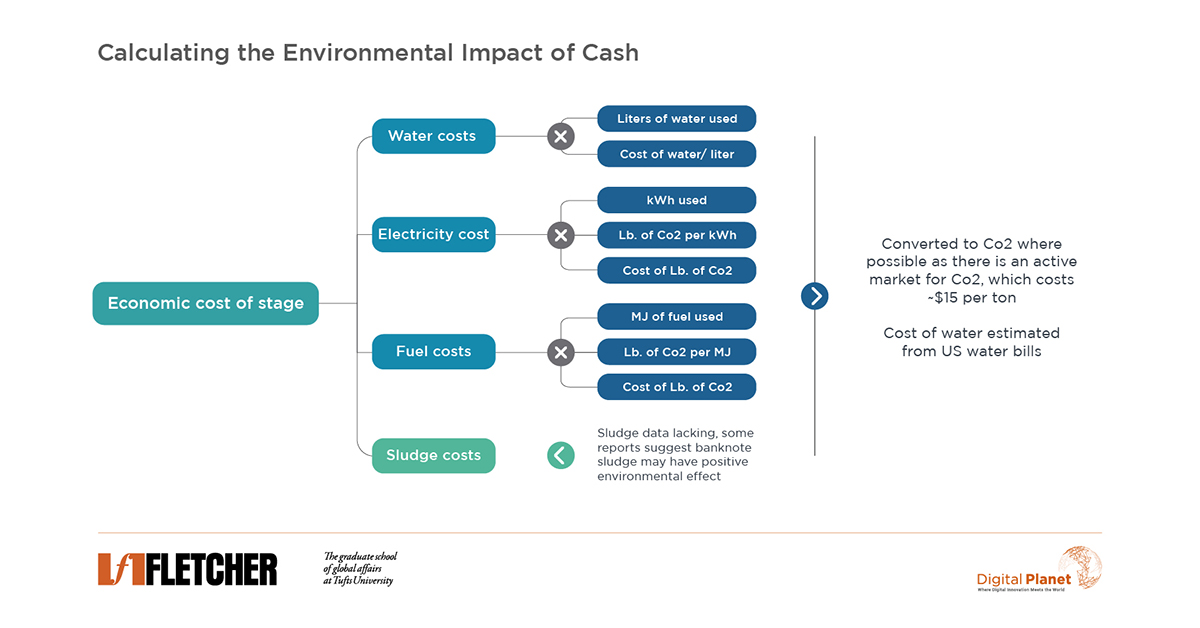
Value storage has costs: US cash notes at $0.26 each vs. Bitcoin’s $70 per coin CO2. Despite Bitcoin’s higher cost, cash notes’ total impact ($12.9B USD) far exceeds Bitcoin’s ($1.3B USD).
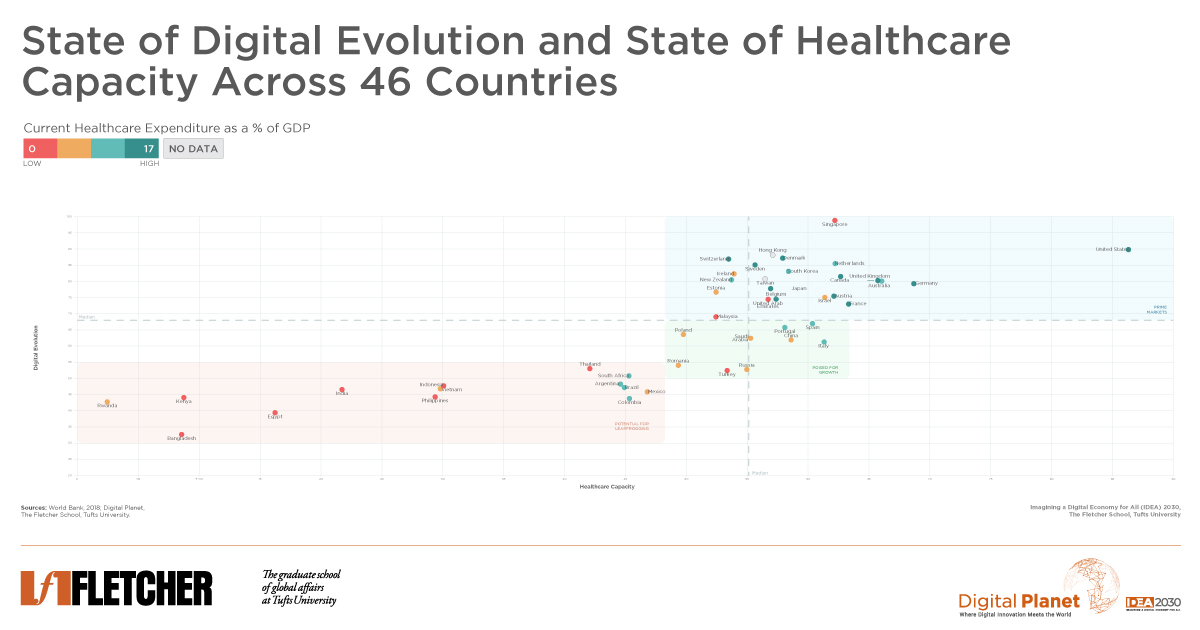
Global healthcare digitization varies wildly. Our study in 46 countries identifies virtualized healthcare opportunities, enabling lagging nations to leapfrog with digital tools for quality care.
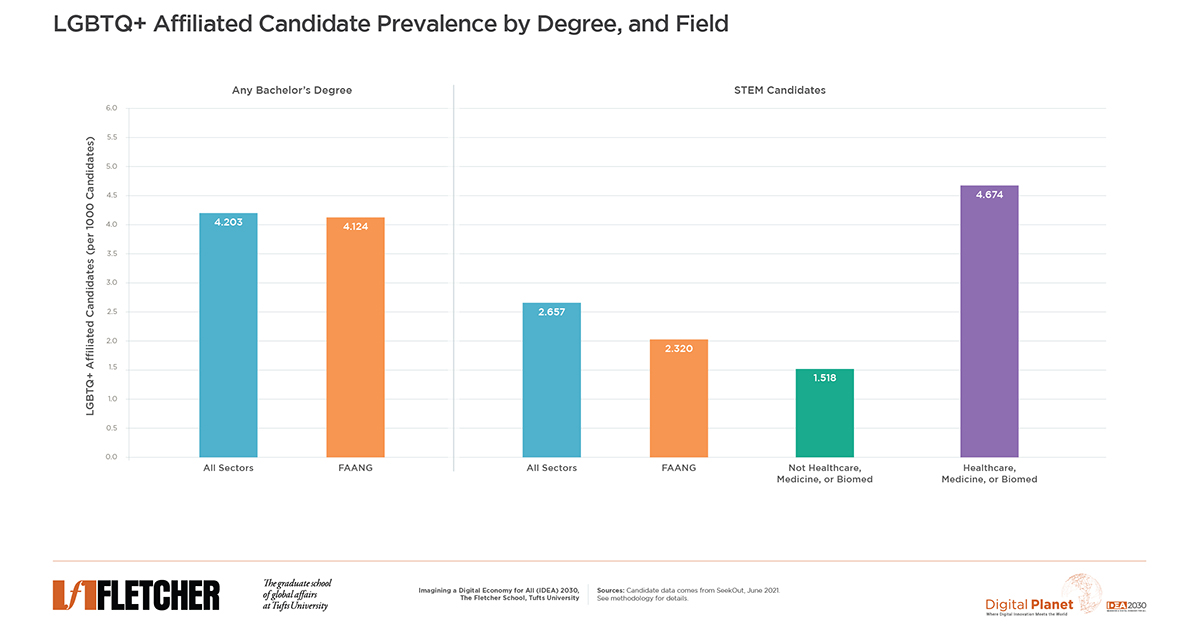
Digital Planet explores LGBTQ+ solidarity in STEM for Pride Month. STEM grads express less LGBTQ+ on resumes. Women in STEM are twice as likely as men to affiliate with the gay community.
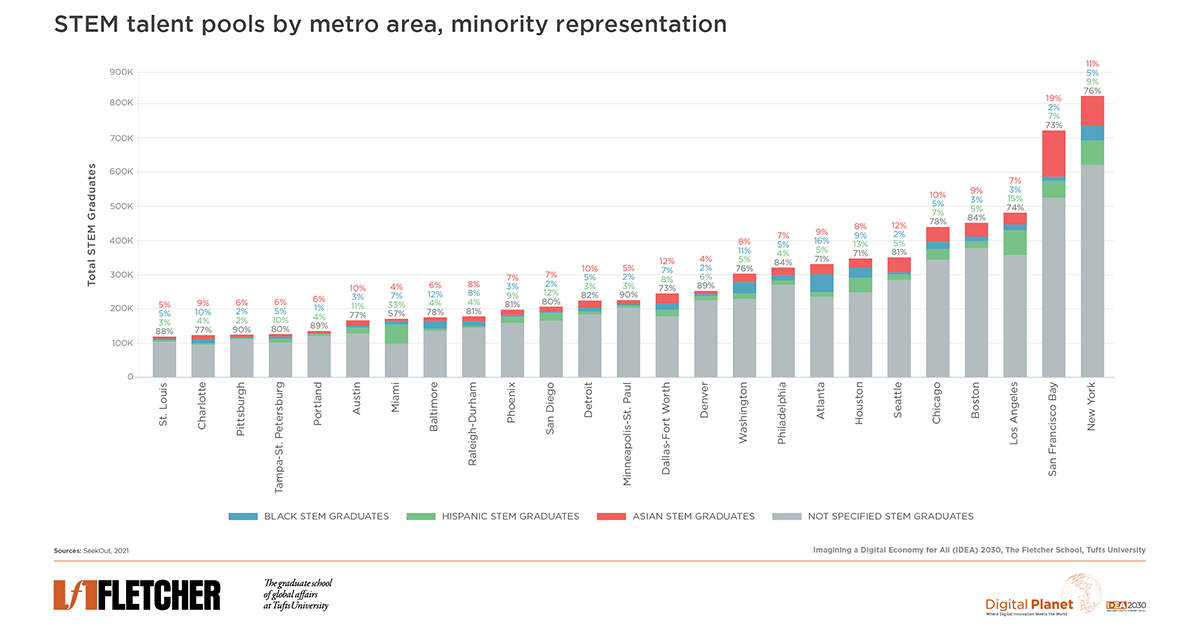
In the evolving work landscape, how can we boost under-represented talent (e.g., Black, Hispanic, female) in high-demand roles? Where can organizations find these diverse pools in major U.S. metro areas?

Why are we so divided about the true state of the digital divide in America? What steps might the Biden-Harris administration take to clarify the reality of this divide and move toward closing the gap? This webinar examines how these changes can be transformational for a recovering, yet socially distanced economy.
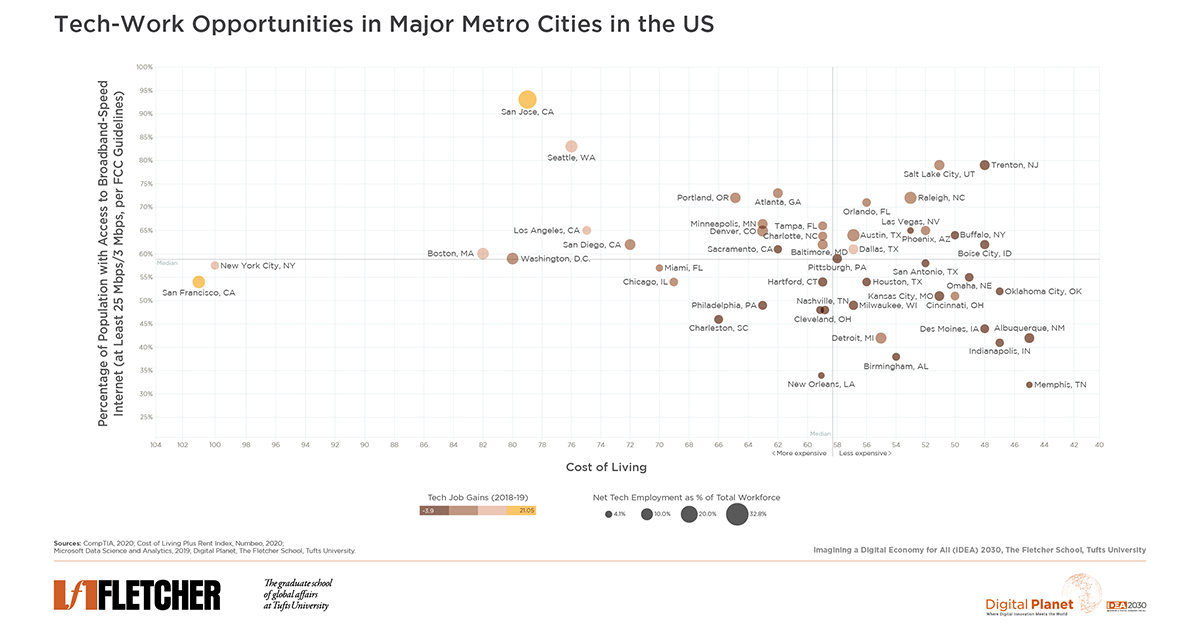
US States expanded telehealth, yet 16 of them face challenges with subpar broadband, hindering digital healthcare access.
Jack Dorsey’s new-found courage to silence Trump’s Twitter handle may have been helped by the reality that an ex-president, now twice impeached, who incited a mob to attack his own seat of government, may command fewer advertising dollars.
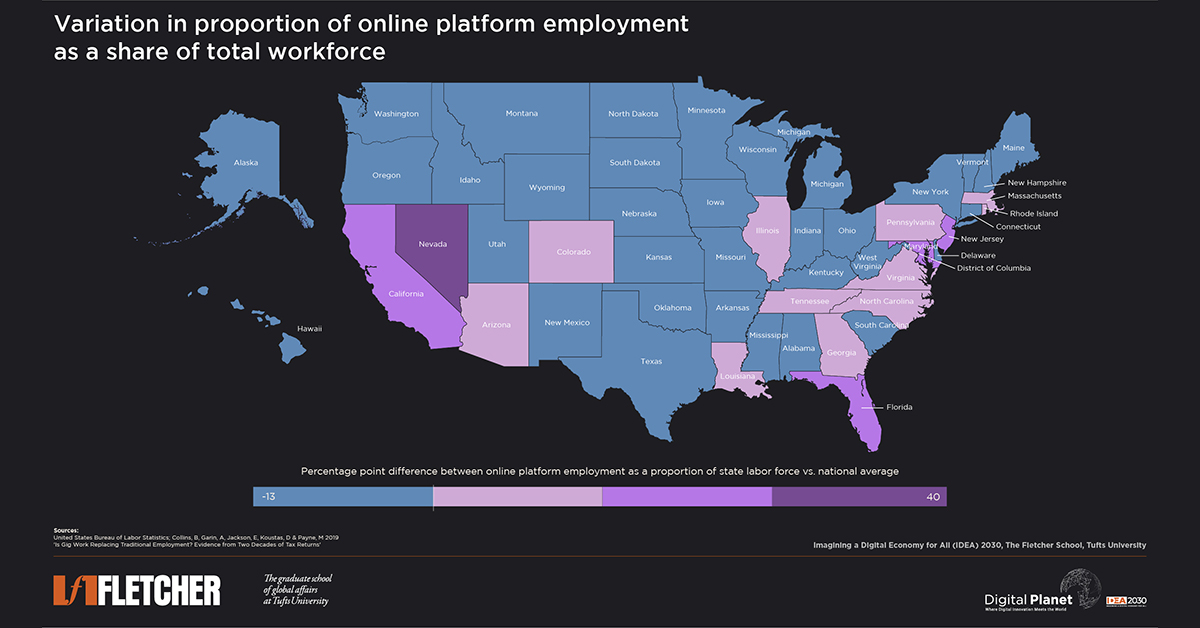
Digitally ready states thrived during the pandemic, leveraging gig workers for essential services. Yet, it revealed disparities and vulnerabilities in the gig economy.

Resilience reflects digital infrastructure and citizen trust, according to Fletcher School study.

Covid-19 brought home the urgency of closing a digital divide that has left millions in the cold under lockdowns.

An interactive research report that indexes trust in the digital economy and its evolution across 90 economies during the COVID-19 pandemic. This report features a collaborative research platform that provides data and evidence-driven actionable insights to leaders in government, business and technology.
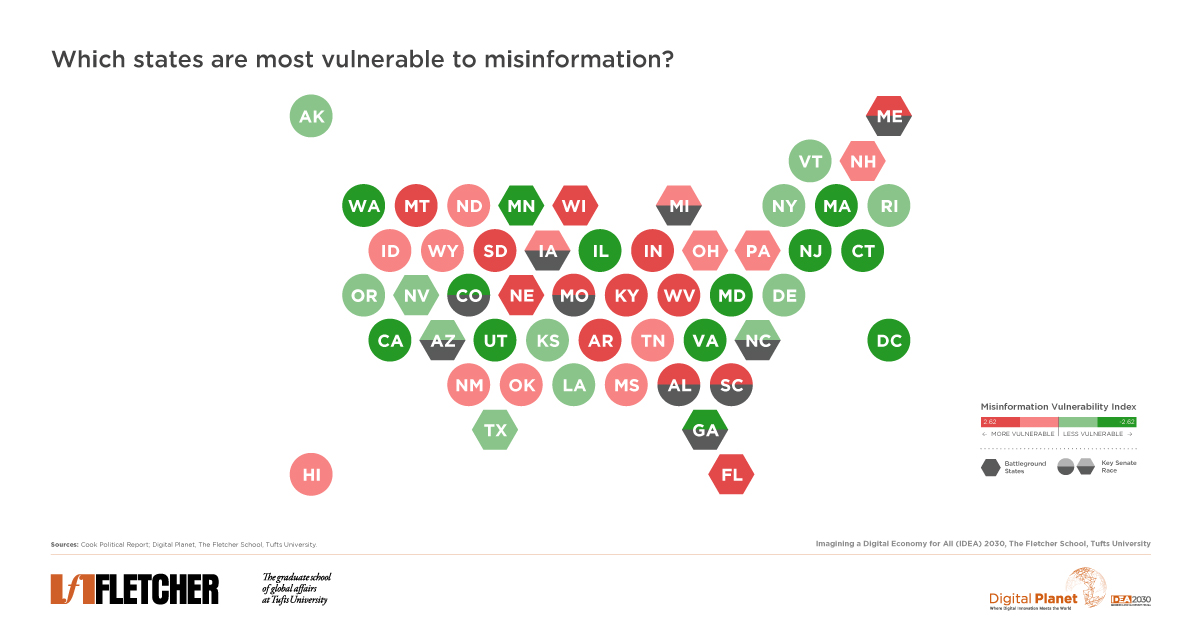
US parties race, relying on digital platforms. Public dependence on social media for news raises concerns about misinformation amid the COVID-19 pandemic, fueling a surge in digital crime.
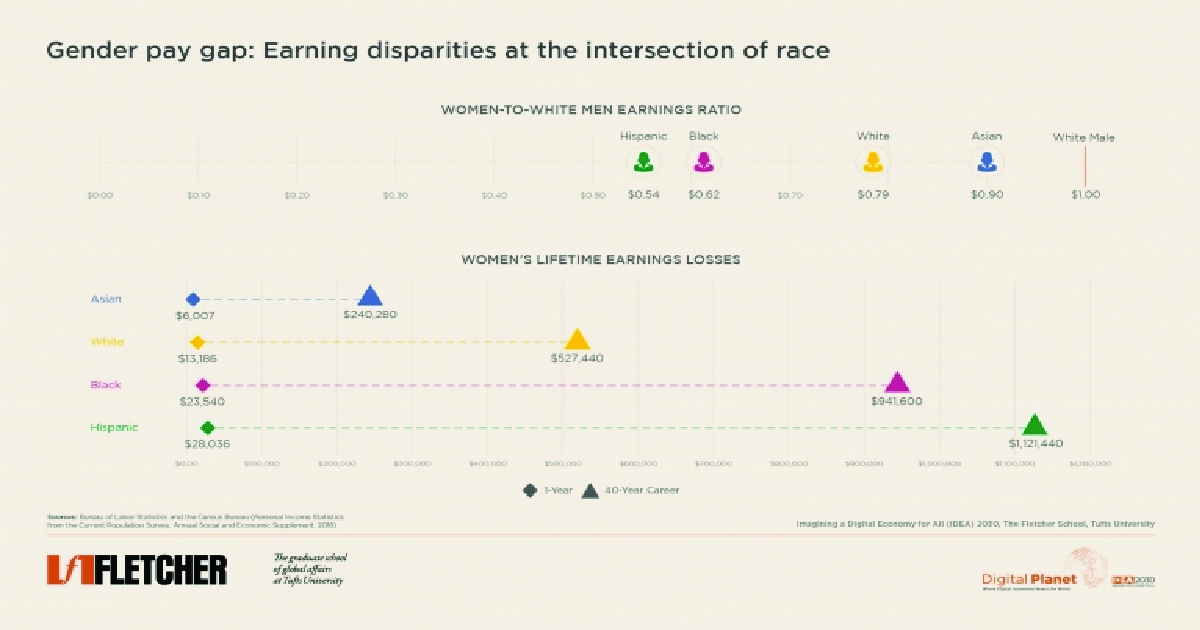
US women earn 82¢ for every dollar men make, worsened by race and education factors.
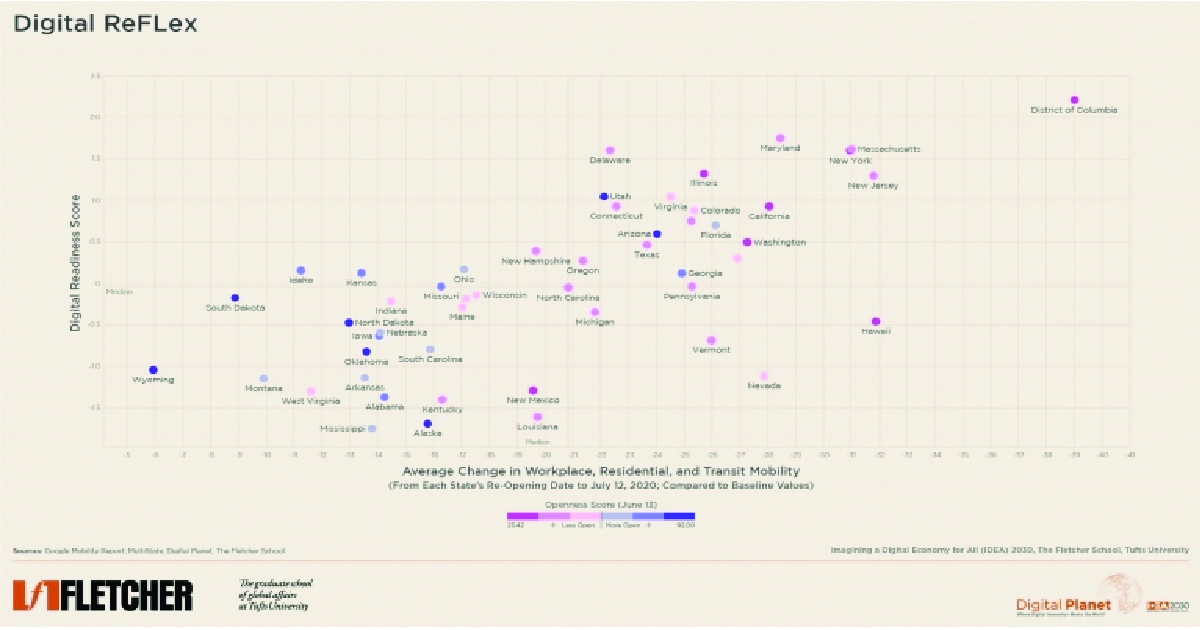
States, amid surging virus, reverse reopenings. Digital-ready states endure lockdowns better, with strict distancing measures for effective COVID-19 control.
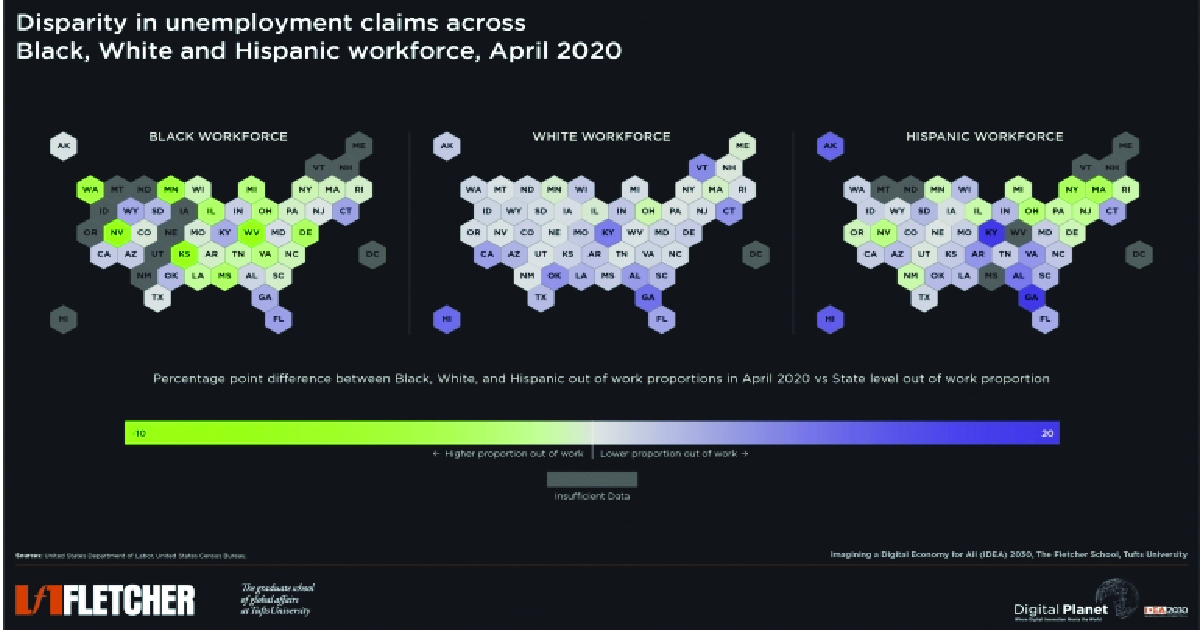
COVID-19 deepens racial disparities, particularly impacting Black communities. Addressing inequalities is crucial for an inclusive recovery.
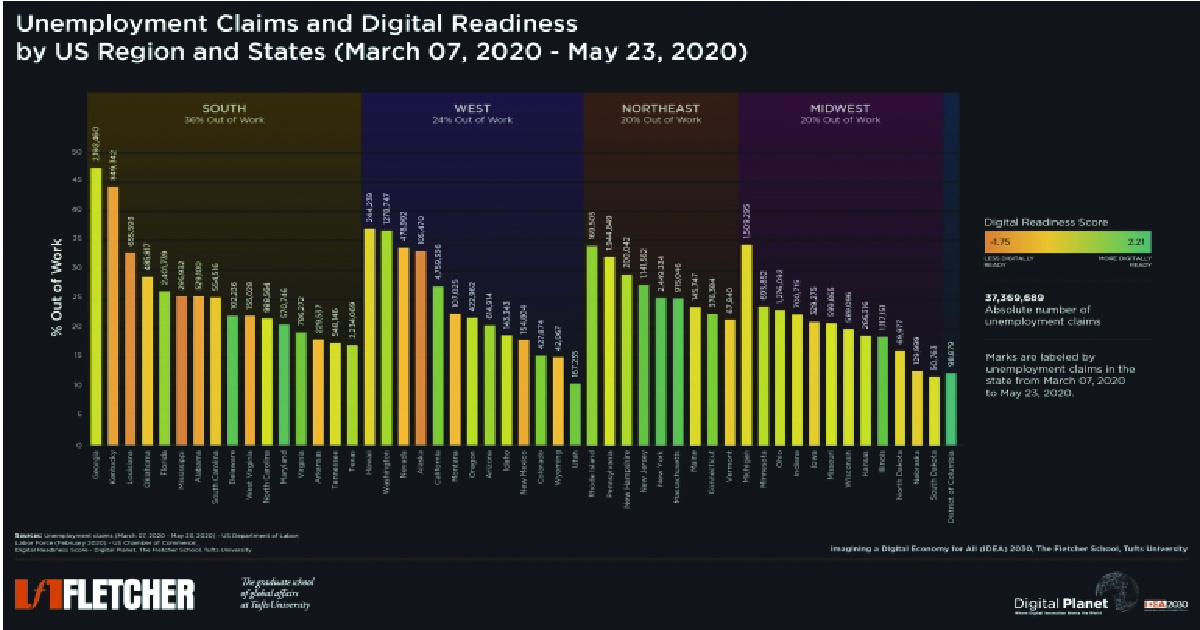
Digital platforms are crucial for business continuity during COVID-19. Washington excels in remote work, job transitions, and online unemployment filing support.
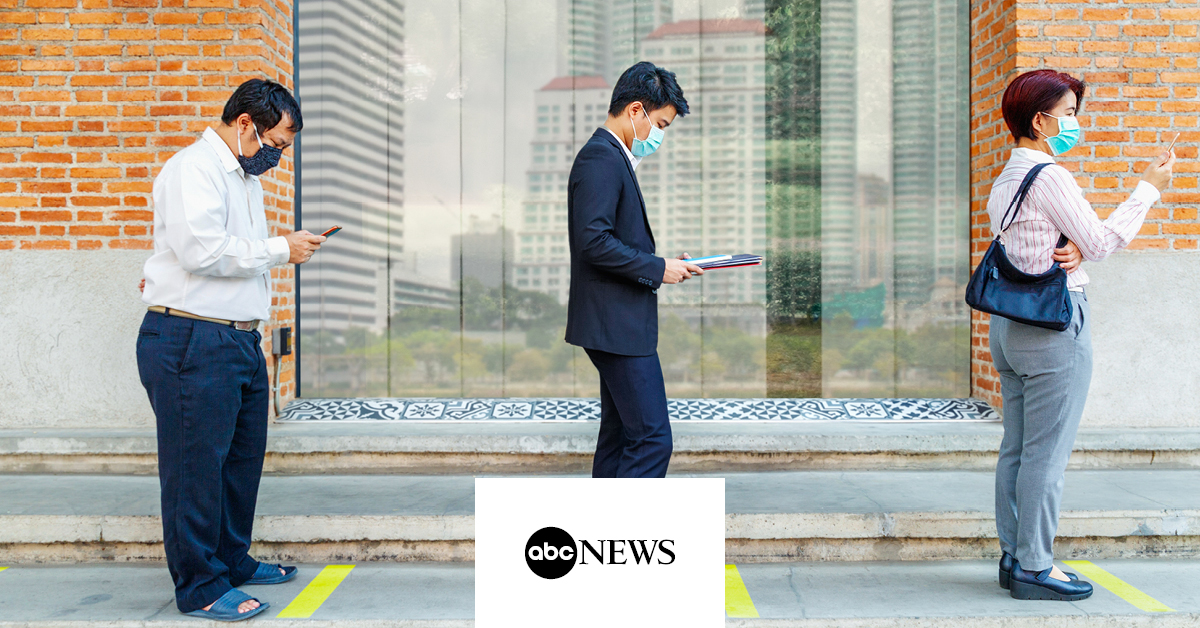
While working from home is an option for the digitally-connected, much of the U.S. and the rest of the world aren’t ready to support a remote workforce.
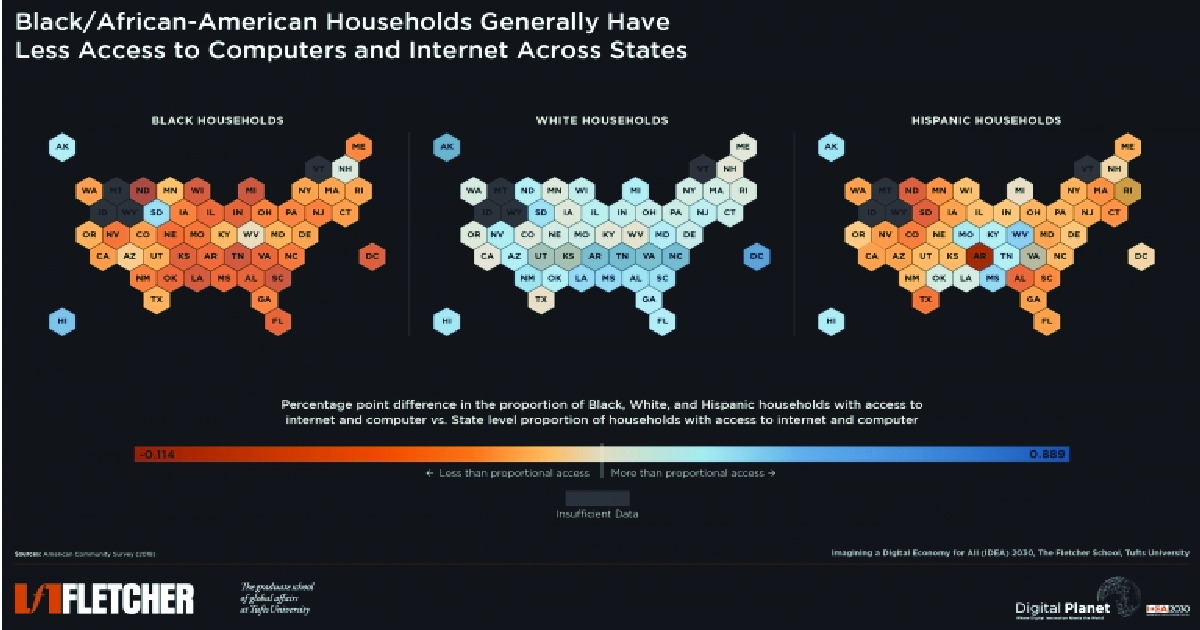
COVID-19 exposes US inequality, with certain races over-represented in less-flexible, low-tech jobs due to limited access to stable internet and computers.
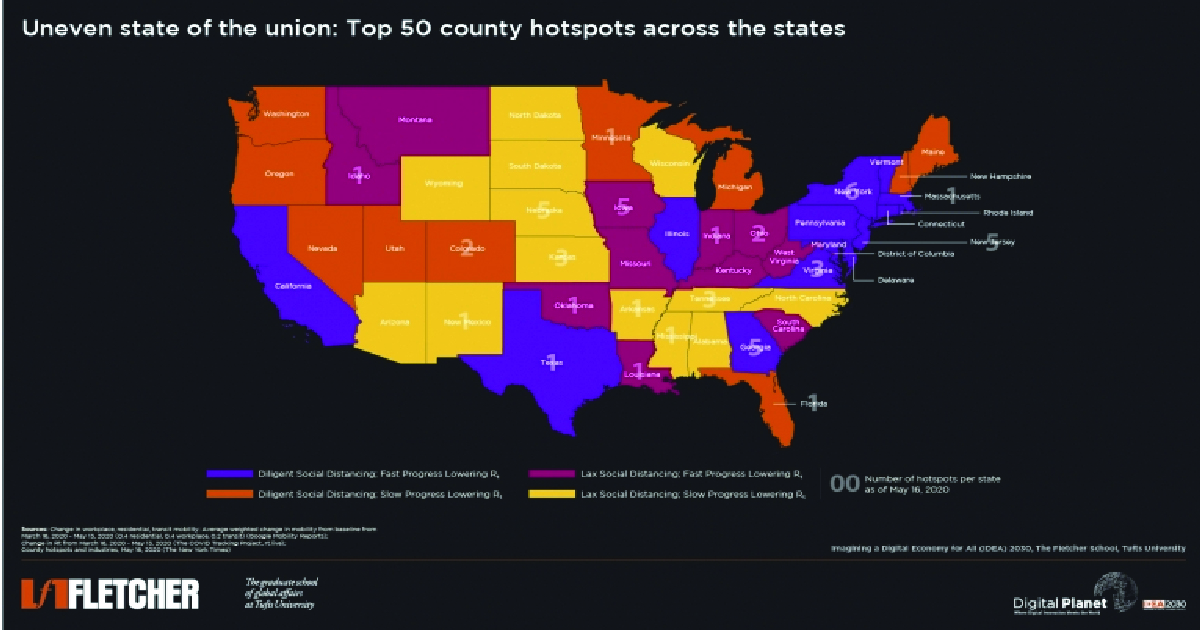
Despite 1.67M cases and nearly 100K deaths, US states vary in easing COVID-19 restrictions due to a lack of federal guidance.

COVID-19 reveals US inequality, with races over-represented in inflexible, low-tech jobs due to limited internet access.
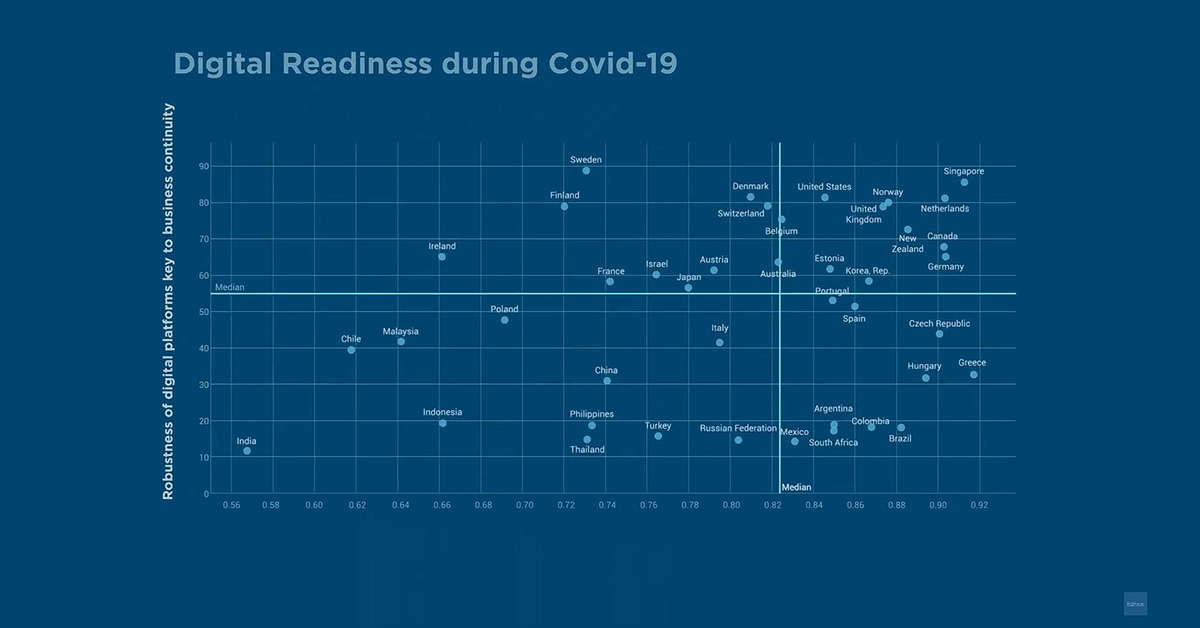
Are countries around the world prepared to keep the wheels of their economies turning during Coronavirus lockdowns? Watch the Social Distance Readiness Benchmark video summary to find out.
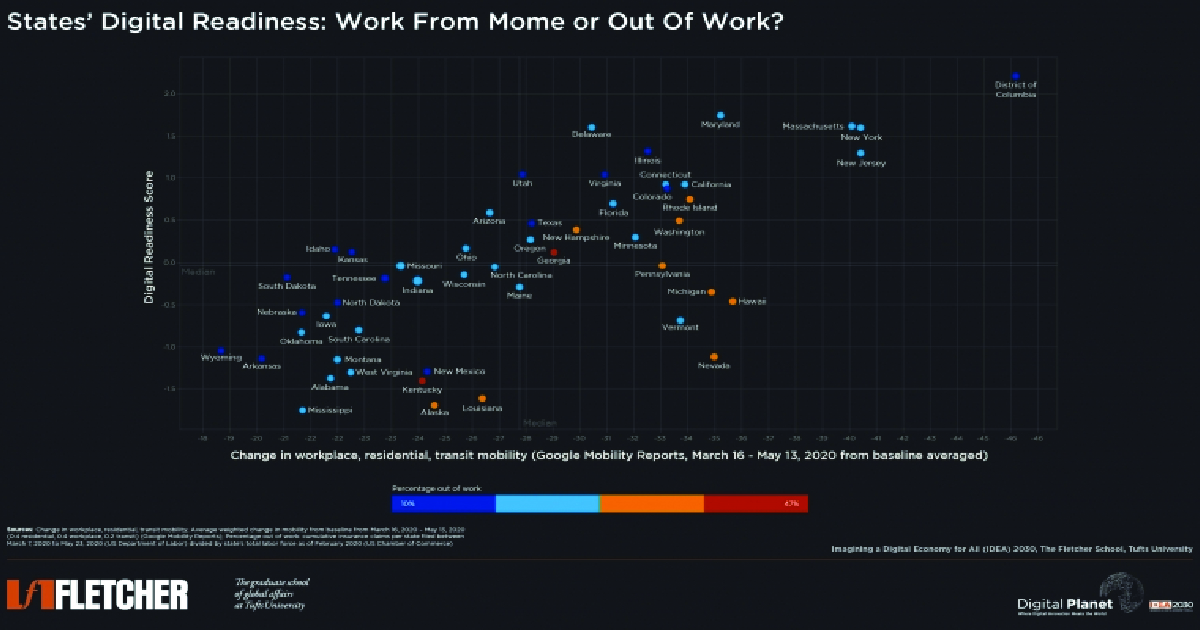
During the COVID-19 lockdown, US States that were least digitally ready and had the strictest social distancing measures experienced the highest unemployment numbers.
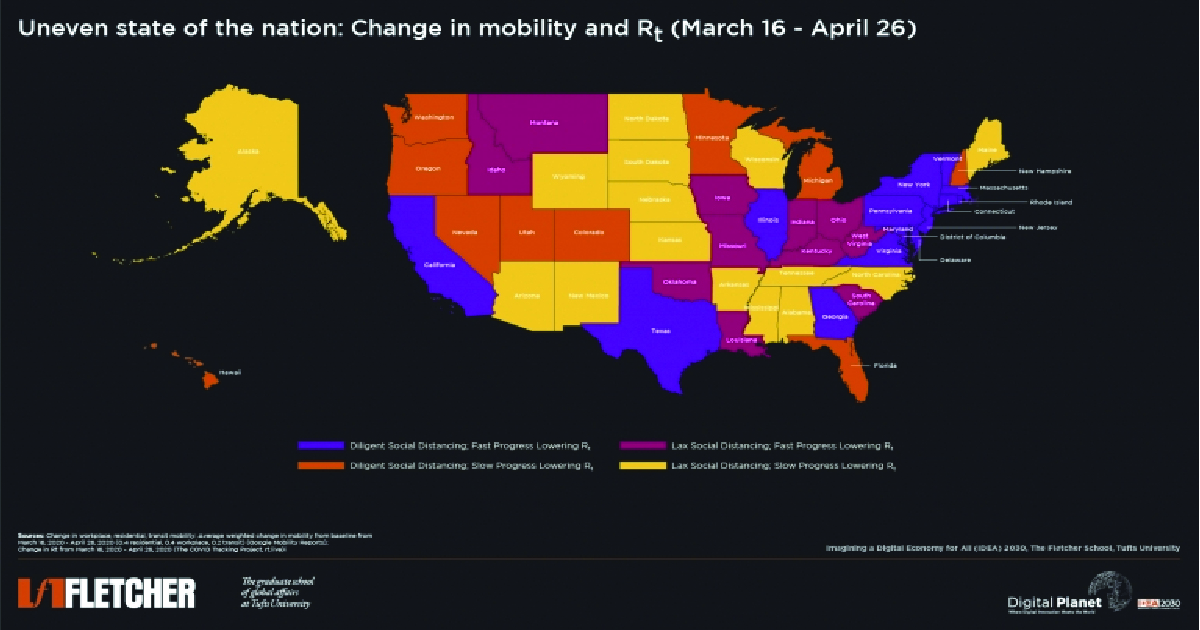
How does COVID-19 affect various US regions? Digital Planet analyzed mobility changes in relation to the virus reproduction rate.

USA Today | Bhaskar Chakravorti states guidelines to reopen states are “a bad idea motivated by Trump’s political motives rather than a measured, data-driven public health strategy.”
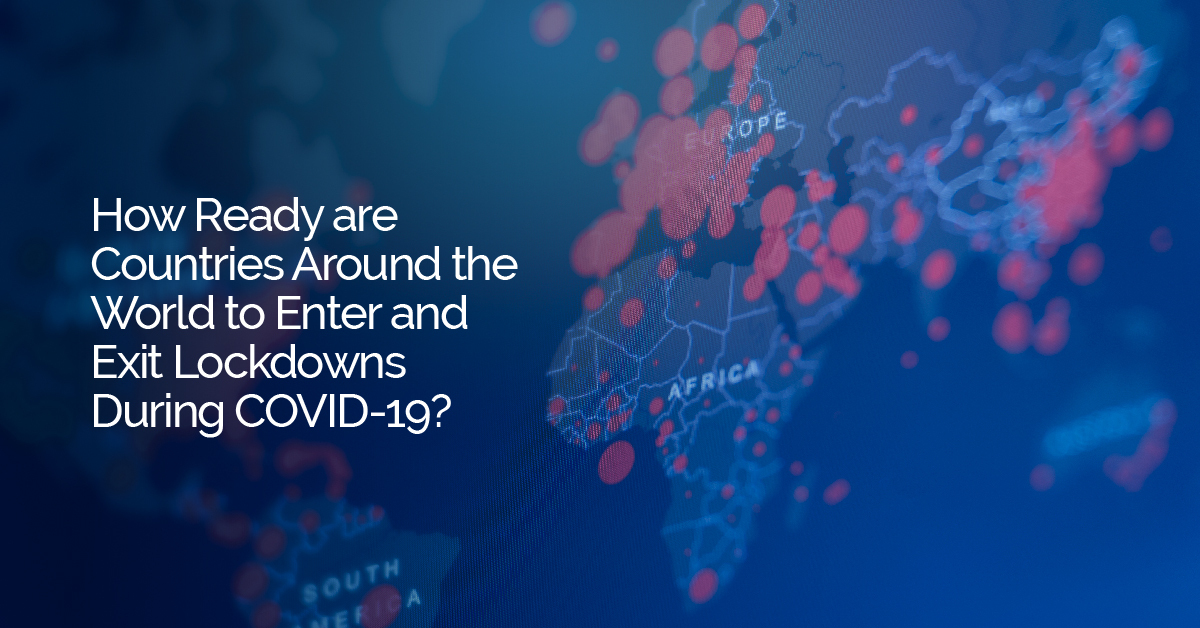
A Social Distance Readiness analysis of 42 countries measuring the robustness of their digital platforms; resilience of internet infrastructure to traffic surges; proliferation of digital payments options and percentage of workforce able to telecommute.

If the yardstick of effectiveness of any scorecard or ranking were tangible efforts, by those graded, to “improve bad ratings or maintain good ones,” few come even remotely close to the World Bank’s annual Doing Business survey.
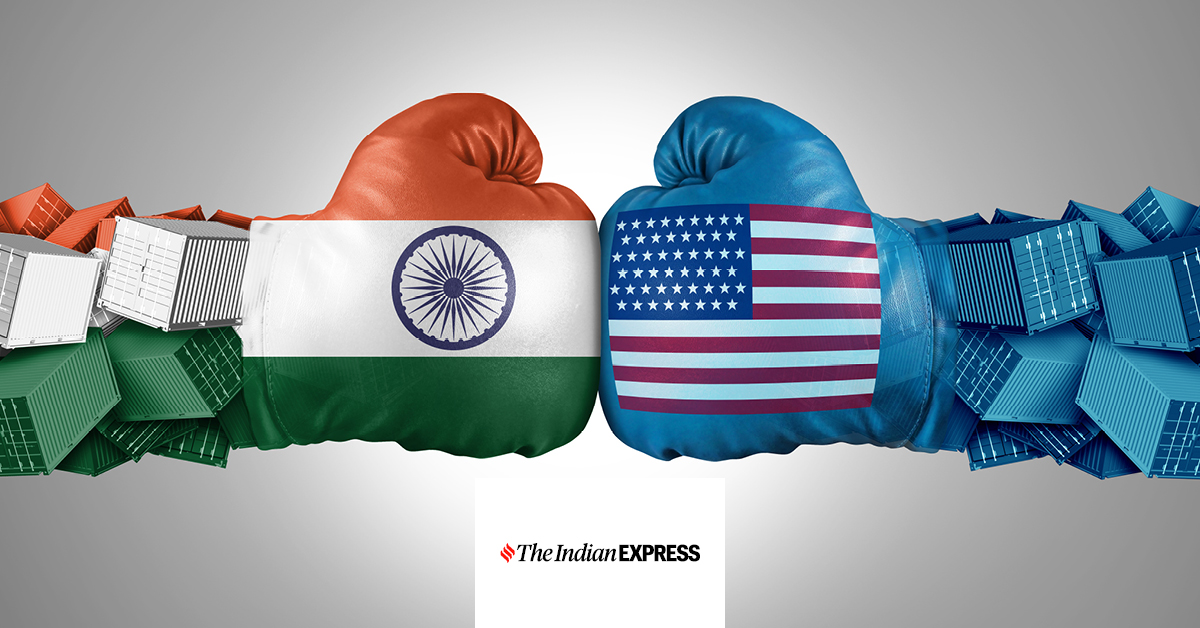
Can Jaishankar persuade U.S. authorities to recognize that immigration restrictions may not help Americans get jobs?

Explore the enduring relevance of cash in today’s digital world. Discover the reasons behind its persistence, including anonymity, control, and trust. Learn about the challenges faced by digital alternatives and the complex interplay of habits, regulations, and technology in the cashless revolution. Dive into a comprehensive study shedding light on the costs and benefits of cash use across various stakeholders in the American economy.